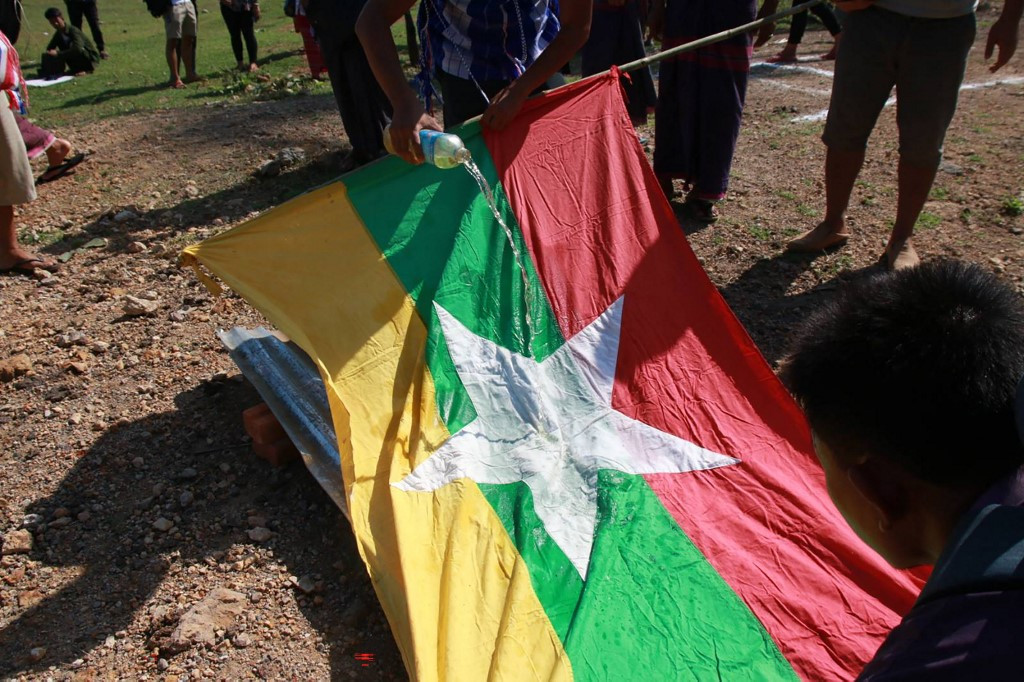Popular Reads
Top Results
Can't find what you're looking for?
View all search resultsPopular Reads
Top Results
Can't find what you're looking for?
View all search resultsTo save Myanmar’s people, ASEAN should act now
The killing has continued.
Change text size
Gift Premium Articles
to Anyone
I
t has been more than a month since ASEAN foreign ministers met virtually to discuss the crisis in Myanmar on March 2. At the meeting, the ministers “called on all parties to refrain from instigating further violence”.
This sort of statement has had no effect on the Tatmadaw, the Myanmar’s armed forces. The killing has continued.
On March 19, President Joko “Jokowi” Widodo called for a special ASEAN summit. A week later, on Myanmar’s Armed Forces Day on March 27, the Tatmadaw killed more than 100 protesters. On Friday, more than 80 people were killed.
By Sunday, at least 700 lives had been lost in the wake of the Feb. 1 military coup, and thousands had been arrested.
Pressure has mounted on ASEAN to move faster and find a solution to the Myanmar conundrum. Indonesia’s request for ASEAN to convene a special summit raised expectations that the group finally sensed the urgency of the matter. Unfortunately, the bloc has still not announced when the special ASEAN summit will be held.
It seems some ASEAN countries are still struggling to find suitable dates for their leaders to travel to the ASEAN Secretariat in Jakarta. Not everyone has the same sense of urgency that the group needs to act fast or the people of Myanmar will suffer more.
ASEAN may not be in a position to offer an immediate solution to the Myanmar crisis, but it has an obligation to find ways to prevent the ongoing crisis from developing into a full-blown humanitarian tragedy and a catastrophe of epic proportions. It needs to find ways to stop the killing at the least.
The developments have been very frustrating so far. None of the condemnation or sanctions imposed by the West have changed the attitude of the junta. And as a result, the response to the crisis is now framed within two opposing proposals.
On one hand, the growing frustration has prompted some leading international figures to call on the United Nations Security Council (UNSC) to invoke the principle of the Responsibility to Protect (R2P), either in the form of military intervention or through other instruments in its “toolbox”.
The problem with this proposal is obvious. It is not clear whether the UNSC would be able to reach a consensus and unanimously vote for it. Moreover, it is not immediately clear which country or countries are ready to send troops to invade and implement the R2P in Myanmar. The most difficult obstacles of all are the geopolitical implications of such an action, which would transform Myanmar into a play for great power competition in Southeast Asia.
On the other hand, some realists — such as Bilahari Kausikan of Singapore — have warned that patience is key in managing a problem like the one in Myanmar.
“No crisis is ever resolved before it is ripe for resolution. Myanmar’s crisis is far from ripe and is at a stage where precipitate action by external parties could be very dangerous,” he wrote in The Straits Times on April 6.
Anyone who thinks along these lines would easily come to the conclusion that ASEAN leaders should be patient and that that there is no need to rush into convening a summit because “all the ASEAN leaders can do is discuss the situation and make another statement”.
However, this argument is fraught with problems as well.
First, waiting and sweeping the problem under the carpet, even when one calls it “strategic patience”, will not make any difference. In the case of Myanmar, for example, it is possible that the military will finally manage to impose a degree of control, probably with unimaginable costs in terms of human life. But this is obviously not “the solution” that is expected by the majority of the people of Myanmar, who wish to live under elected civilian rule.
Second, waiting for the crisis to be “ripe” is irresponsible. When can we call a crisis is ripe for a solution? After more than 100,000 lives are lost? Or should we wait until the conflict turns into a civil war, drags on for years, reaches a stalemate and no clear winner emerges from it?
A conclusion to a crisis can be found in the process of searching for the solution, in the process of preventing the crisis from turning into a catastrophe, in the process of avoiding a tragedy.
Indonesian leaders believe that it is ASEAN’s obligation to help Myanmar find a solution without waiting for the crisis to be “ripe”. That is why Indonesia is asking fellow ASEAN members to prevent the crisis from exploding into a catastrophic tragedy. And the ASEAN summit proposed by President Jokowi would serve as a key starting point for leaders to agree on concrete steps that ASEAN can take to help Myanmar.
A lot of good ideas are being discussed within ASEAN on how the group can help. We need member states to show more compassion for the suffering of Myanmar people and agree on the date to meet at the ASEAN Secretariat. If we cannot even agree on the date and venue of the summit, then no one should be blamed for thinking that ASEAN is becoming useless and irrelevant.
Indonesia believes that our dignity will be preserved if we try and fail. But if we do not even try, then it will be hard to explain to our grandchildren why a tragedy took place in Myanmar.
***
Senior research fellow at CSIS Jakarta and former Indonesian ambassador to the United Kingdom (2016-2020










